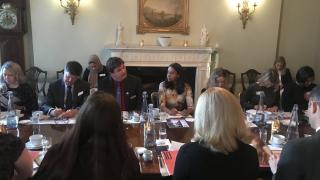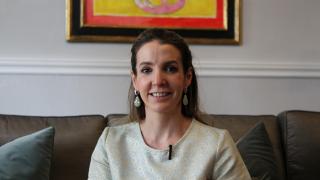
UNA-UK and the Swedish Embassy in London convened around 20 diplomats, activists and academics to discuss the notion of feminist foreign policy.
Discussion focussed on the question of how foreign policy could be truly feminist if it seeks to work within existing institutions and structures, given those institutions and structures maintain our fundamentally unequal world. At the same time, as Torbjörn Sohlström, Swedish Ambassador to the UK, argued:
“We are always going to have foreign policy. The choice is whether that foreign policy has a feminist attitude or not."
The event was held to mark the launch of UNA-UK’s magazine. As Zarina Khan, Director of Gender Action for Peace and Security (GAPS) argued within the magazine:
“By adopting feminist language in their international policies, the Swedish and Canadian governments are setting important precedents. But they risk diluting a fuller understanding of feminism if they promote a largely unchanged global system”.
The magazine, entitled ‘The ‘F’ Word’, looks at feminist foreign policy, through extended features on how the term is applied at the UN, and by governments in Sweden, Canada and the UK. Margot Wallström, Minister for Foreign Affairs, Sweden contributes her view. The magazine also carries a detailed interview with Diane Corner, who served as UN Deputy Special Representative in the Central African Republic, and contributions from experts and activists working in the Democratic Republic of Congo and Syria, and for UN Women and the UN Population Fund.
In her hard-hitting editorial, UNA-UK Executive Director Natalie Samarasinghe writes that women are still battling for their basic rights and safety; suffering economic, political and social discrimination in the UK, at the UN and around the world:
“Whenever women face discrimination, there are men – and women – who bear individual and collective responsibility. If you aren’t challenging the status quo, that includes you”






